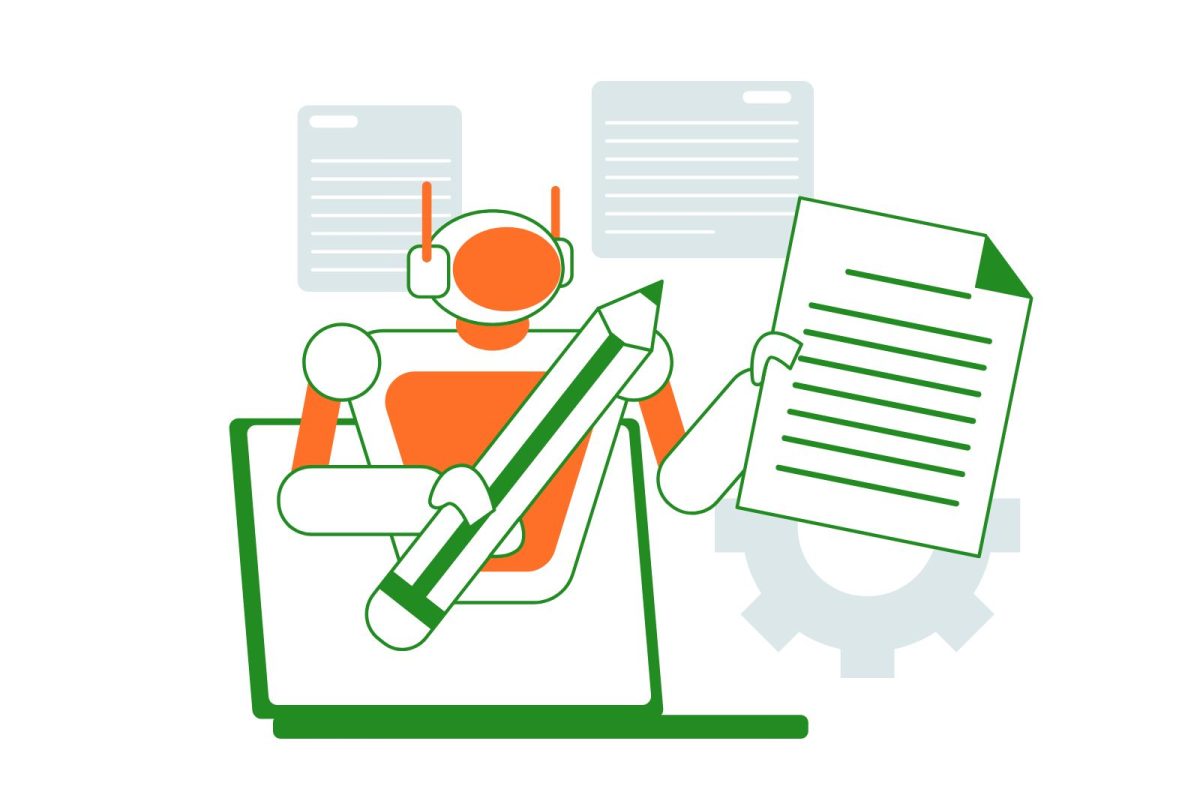Table of Contents

Artificial Intelligence (AI) has transformed the way businesses approach website copywriting. From crafting product descriptions to creating blog posts, AI-powered writing tools promise speed, efficiency, and cost savings. But is AI copywriting always the best choice?
While AI tools are impressive, they come with both advantages and limitations. In this article, we’ll explore the pros and cons of using AI for website copywriting, helping you decide whether it’s the right fit for your digital strategy.
The Pros of Using AI for Website Copywriting
1. Faster Content Creation
One of the biggest benefits of AI is speed. AI tools can generate paragraphs of content in seconds, which is especially helpful for large-scale projects like e-commerce product listings or website updates.
Instead of spending hours on first drafts, businesses can quickly produce copy and then refine it to match their brand tone. This efficiency can be a game-changer for teams with tight deadlines.
2. Cost-Effective for High-Volume Needs
Hiring skilled copywriters for large-scale projects can be expensive. AI can significantly reduce costs by handling the bulk of initial writing. This doesn’t mean replacing human writers entirely — rather, it allows businesses to focus human talent on editing and strategic tasks instead of starting from scratch.
3. Consistent Tone and Structure
Many AI tools can be trained to follow specific style guides or tone preferences. This means businesses can maintain consistent formatting, grammar, and structure across multiple web pages — an important factor for brand credibility and user trust.
4. Data-Driven Optimisation
Advanced AI copywriting tools can incorporate SEO-friendly keywords and analyse competitor content to suggest improvements. This can give your website a better chance of ranking higher in search engines, especially when combined with a strategic SEO plan.
For example, incorporating high-impact keywords like AI for website copywriting into headings and body text can improve visibility without keyword stuffing.
The Cons of Using AI for Website Copywriting
1. Lack of True Creativity and Emotional Connection
While AI can mimic human writing styles, it often lacks genuine creativity and emotional depth. Website visitors respond to storytelling, personality, and subtle nuance — areas where AI can still fall short.
For instance, AI might generate grammatically correct content, but it may not resonate emotionally with your audience or capture the unique brand voice you want.
2. Risk of Generic or Inaccurate Content
AI pulls from existing data patterns, which means it can sometimes produce generic content or even factual errors. Without careful human review, your website could end up with information that’s outdated or misleading.
Search engines are also getting better at detecting low-quality AI-generated text, so unedited AI content can harm your SEO rather than help it.
3. Limited Understanding of Brand Nuance
Your brand voice is more than just tone — it’s the personality, values, and subtle messaging that make you unique. AI tools may get the basics right but struggle with cultural context, humor, or niche industry references unless heavily guided.
4. Potential SEO Risks
If AI-generated content is not properly optimised, it can lead to keyword overuse, poor readability, or duplication issues. Google’s algorithms prioritise original, valuable content, so AI output must be reviewed and refined to avoid SEO penalties.
According to Google’s guidelines on AI-generated content, the focus should always be on quality, relevance, and originality — regardless of how the content is produced.
Best Practices for Using AI in Website Copywriting
1. Use AI as a Writing Assistant, Not a Replacement
AI is most effective when used as a tool to support human creativity, not replace it. Let AI handle research summaries, outlines, or draft generation, while humans focus on refining and adding brand personality.
2. Always Fact-Check and Edit
Never publish AI content without a thorough human review. Fact-check statistics, ensure accuracy, and make sure the tone aligns with your brand identity.
3. Blend AI Efficiency with Human Creativity
The best website copywriting strategy often combines AI’s speed with human insight. This hybrid approach ensures efficiency without sacrificing originality or emotional connection.
For example, at Pressific, we believe that high-performing websites require a balance between technical precision and authentic brand messaging — something that AI alone cannot yet achieve.
4. Focus on SEO-Friendly Structure
Even with AI assistance, your content should have clear headings, keyword-rich titles, meta descriptions, and a logical flow. A well-structured article not only helps readers but also improves search engine rankings.
Conclusion
AI for website copywriting can be a powerful tool — speeding up production, reducing costs, and helping maintain consistency. However, it’s not a one-size-fits-all solution. The lack of deep creativity, potential for inaccuracies, and SEO risks mean that human oversight is essential.
If you’re considering AI for your website content, the best approach is to use it as a supportive assistant, not a standalone replacement. By blending AI efficiency with human creativity, you can produce content that is fast, accurate, and truly resonates with your audience.






